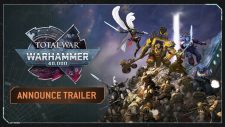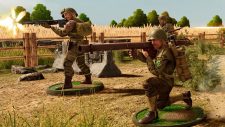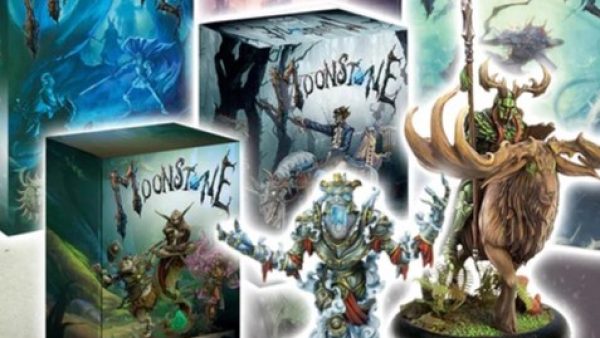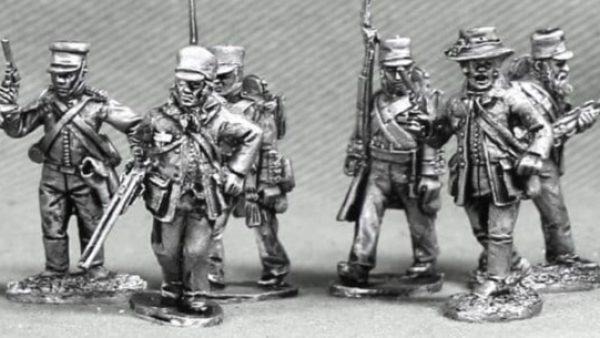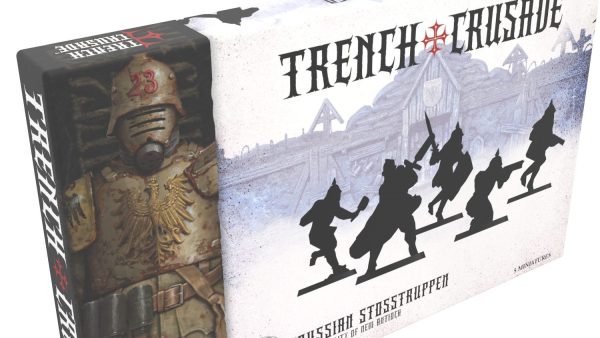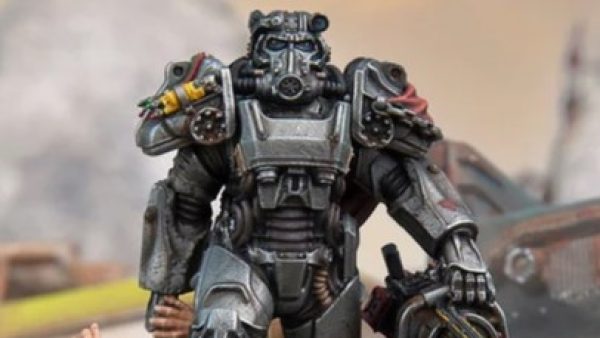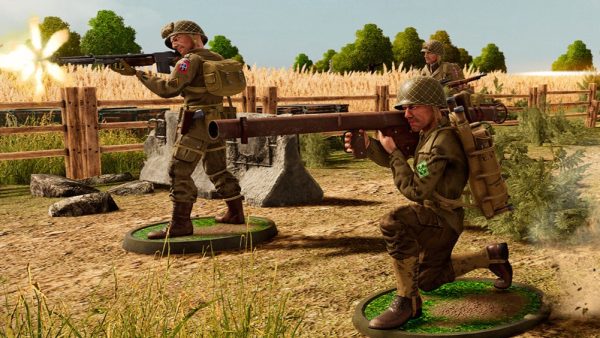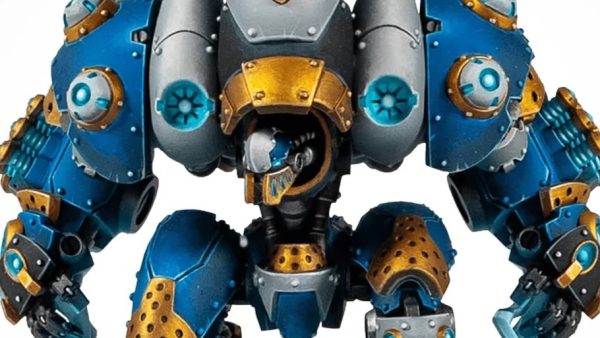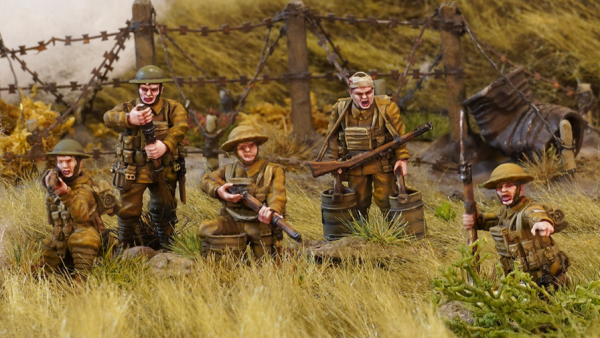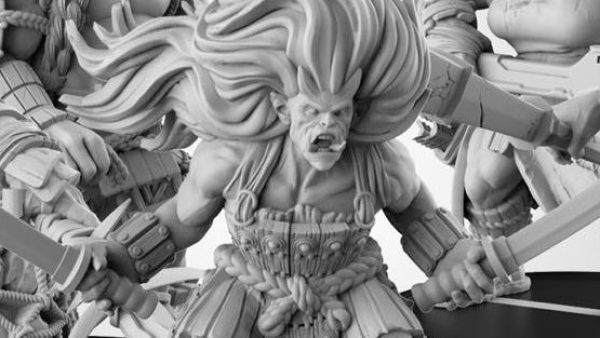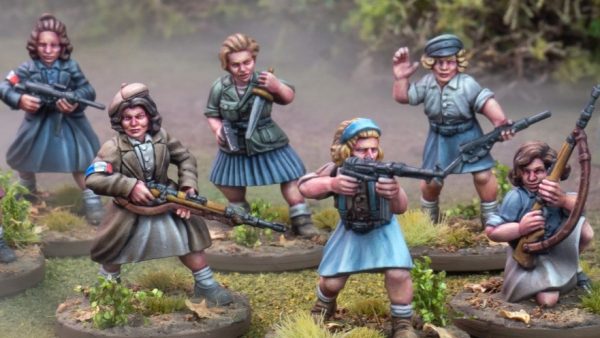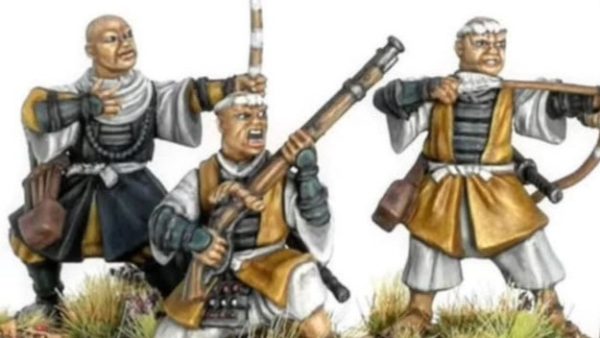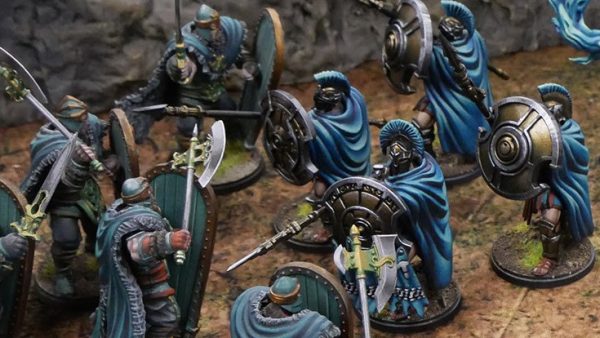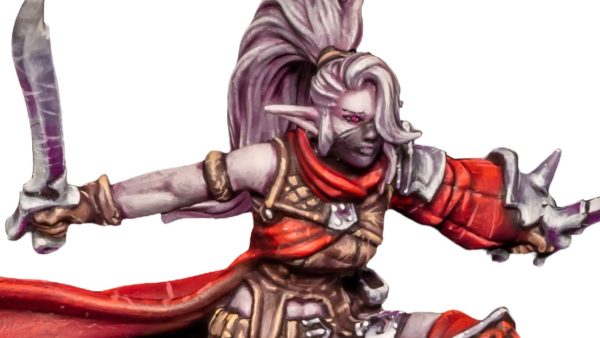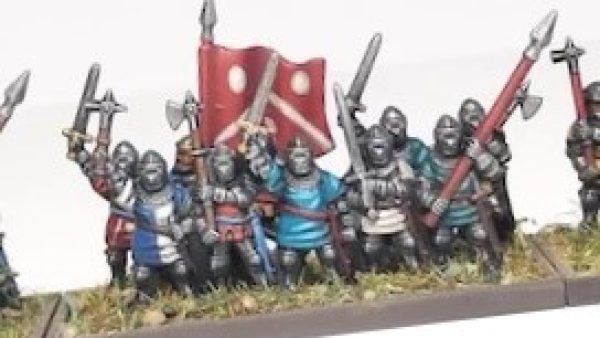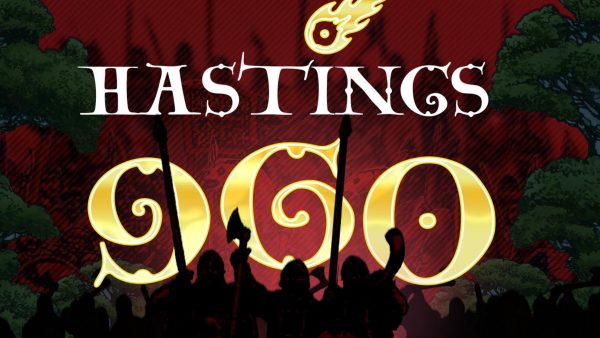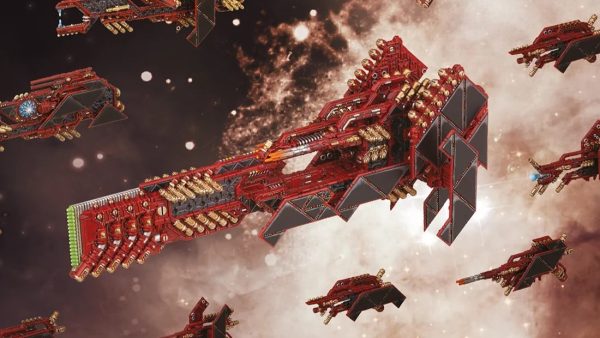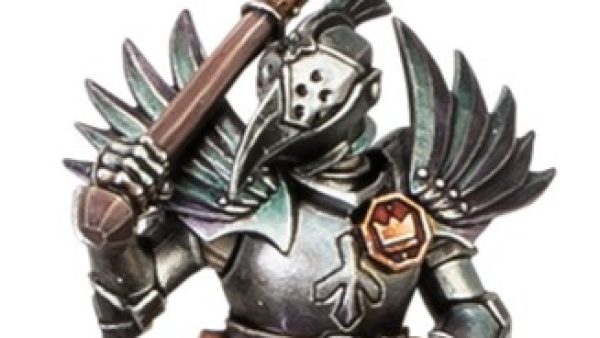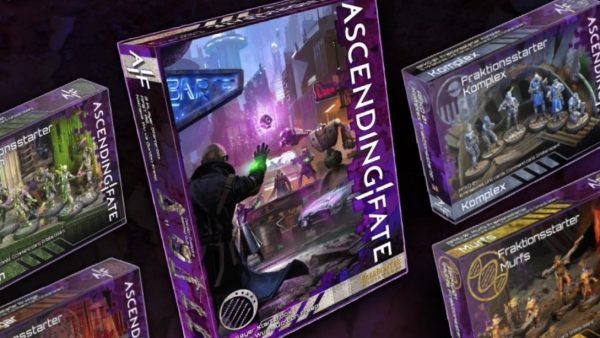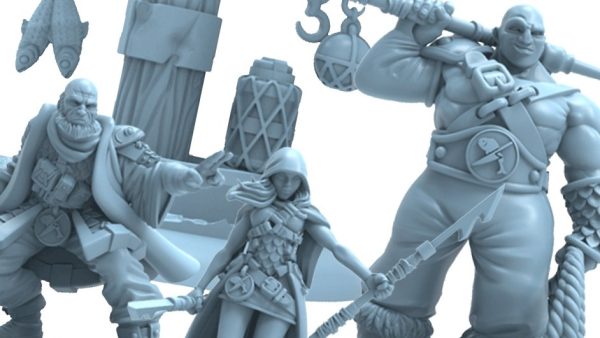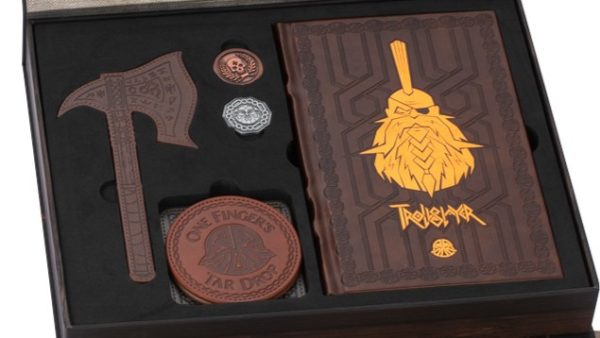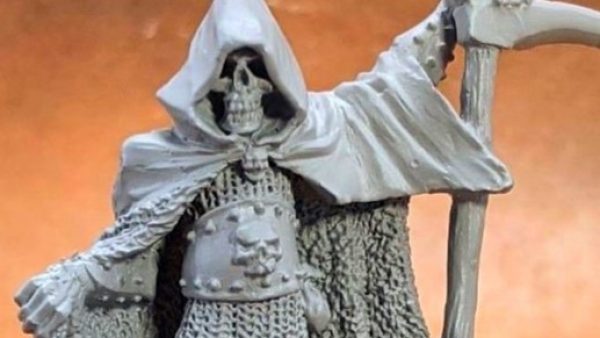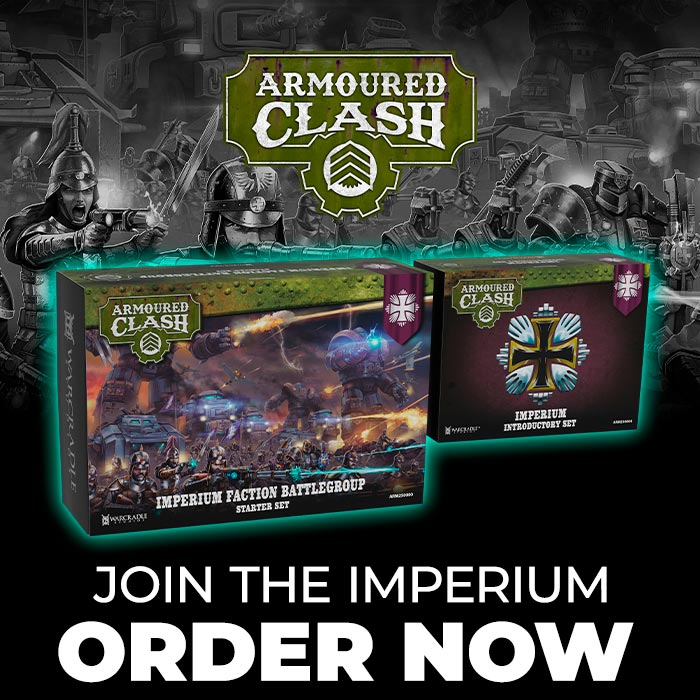Home › Forums › News, Rumours & General Discussion › Why don’t we already have the perfect wargame?
Tagged: the ultimate wargame
- This topic has 52 replies, 15 voices, and was last updated 4 years, 10 months ago by
 oriskany.
oriskany.
-
AuthorPosts
-
February 12, 2021 at 12:28 am #1609868
@horus500 – I think we’re both in agreement with the predictability of cards. Where we differ is whether or not this is a good thing. Personally, I think it brings a feeling of being able to “mitigate” against bad luck – after all, if you know there’s only one king left to be drawn, you can hedge the odds in your favour; there’s still a chance things will go tits up, but instead of it being a potential game-breaker, you know that – until the deck is shuffled/re-dealt – it can’t happen again. Having rules that dictate when players can shuffle keeps things “random with a degree of predictability.”
The whole cards v dice thing was re-visited after @warzan suggested a game with zero randomness. Dice are totally random. He proposed zero randomness, everything being entirely predictable. I feel that cards are a nice middle ground. I’m not disputing that cards lead to predictable outcomes. But – as the big man himself pointed out – sometimes that can lead to a more satisfying game!
I used to play Blood Bowl with friends who house-ruled that each team was represented by a suit of cards (our players were numbered 1-11). For each turn, we’d shuffle the half-deck (minus kings and queens, blizters were jacks, obviously) and played characters in the order the cards dictated.
Imagine a similar machanic instead of you-go-I-go. It could be really interesting.
Not random enough? What if you’re waiting for your “hero character” card to come up and some rule says “replace all the player turn cards to the deck and shuffle them”. That’s where you can use strategies to influence random outcomes – so even if you have some “bad luck” you still feel like you had a degree of influence (if not direct control).
In Blood Bowl you could wait until your “best players” have moved and your opponent’s Star Player has yet to go, then throw down a sneaky “reset the deck” action card. Replace and shuffle up. They may still get to move their Star Player on their very next turn of the card. Or they may have shuffled them straight to the bottom – who knows? Random outcomes – but with player influence.
Something similar for moving in army/skirmish games instead of rolling-with-modifiers for initiative could be a really nice mechanic too; not just the action of resetting the deck, but choosing *when* to as part of an overall strategy. It means more decision making and less reliance on dice rolls. But still with a random element.
Predictable random-ness. It’s the garlic bread of wargaming, I keep telling you 😉
@onlyonepinman – define perfect? For me, the perfect wargame has a random element mechanic that players can influence strategically! This is the hill I’m prepared to die on !!
February 12, 2021 at 5:12 am #1609891As I said elsewhere I think we all can agree that most games don’t last and the fact that people keep creating rules in genres flooded with rules suggests that there’s plenty of room for improvement. I guess if we are going to define “perfect” you start by looking at game mechanics and listing pros and cons. Things like; Turn sequence, game balance, luck/random, etc
What game mechanics do you think are worth examination?
February 12, 2021 at 7:21 am #1609902The only ‘problem’ with random is that people only ever want it to work in their favour …
A lucky dice roll killing a dangerous enemy ? That’s cool.
An unlucky dice roll killing one of your minions ? That’s soo not cool.The thing that dice provide isn’t just ‘randomness’ but also ‘control’. You feel like you’re doing something that mimics taking the shot or swinging the axe. I suspect that’s why most wargames need several rolls to determine success/failure (first to hit, then to defeat armour and finally to wound). It wouldn’t be impossible to reduce all of those rolls to a single mathematical chance, but splitting them gives the players a feeling of being ‘in control’ as well as making the most out of a D6.
Here is a thought :
What about *both* cards and dice ?
The dice roll may give greater rewards, but cards offer predictable outcome.
Pick the option that suits the moment. Maybe add in rules that decide how often and when you can choose either option.Maybe use mechanics like this to give flavour to a faction ?
Faction x is slow and methodical, so they will use a card based mechanic for (most) of their actions.
Faction y is chaotic and irratic at times so they rely on dice rolls to get the job done.//
‘balance’ is overrated as a feature in games.It is usually interpreted that if faction A has one option then faction B needs it too.
Few are willing to accept negative features in their army/units (like snipers being automatically killed in close combat), because they still need a chance to survive bad decisions.It’s the endless arguments in D&D about which class is ‘better’ in a duel, when in reality a thief would murder the warrior in his sleep instead of facing him head on …
Also don’t forget that a wargame shouldn’t always be about defeating an equally matched opponent.
A system that allows for assymetric warfare while giving both sides the same chance to ‘win’ is balanced too.
You just need to accept that you’re likely to be wiped out if you do stupid stuff when you’re playing the smaller faction.February 12, 2021 at 8:24 am #1609905When I’m talking about balance it is with the completely abstract idea that if two players had identical armies, that there was nothing in the mechanics that would favour one over the other. Balance is not necessarily matched play however and as we all know most battles are not even contests.
Numbers, terrain, training, surprise, equipment and morale are all major factors even before a general begins laying out a battle plan. Of course there’s always Luck as well to contend with. To paraphrase Caesar on luck, a good general doesn’t rely on luck but knows how to use it”.
February 12, 2021 at 8:43 am #1609908Uncertainty and Fog do not necessarily have to be modeled by ‘Randomness’ – in fact i’ll be a little controversial here but I might say its a very lazy way to model it 😉
Your opponent will create enough uncertainty and fog of war through their choices and strategies.
Obviously, I haven’t played enough of the ‘no f***g dice’ game to fully explore this but even though you can predict what an outcome may be, so can your opponent and it then becomes a matter of predicting what they are likely to do about it.
So far (still early days) removing randomness has not removed unpredictability 🙂
February 12, 2021 at 8:50 am #1609909Balance is not necessarily matched play however and as we all know most battles are not even contests.
This is important. I must admit I haven’t even thought about asymmetrical play in the randomless game. Gonna mull that over as I’ve harbored a feeling for a while now that wargames should always start from the position of asymmetrical play in their conception.
…. mmmmm thinking cap on
February 12, 2021 at 9:11 am #1609919Is there a perfect ruleset No
Can there be a perfect ruleset Probably not .People write rules as they think this is how a period or genre should work and the rule set they write hopefully portrays that and if their lucky enough they will find others that agree and maybe they will be published
I know what I like in rulesets in regards to mechanics and scale (not size of figure) others will dislike and vice versa and I can’t see that ever really changing
In regards to randomless rulesets I just don’t like the idea. I’ve played a few over the years and like real warfare the unpredictable can and will happen. On the tabletop even if there is only a 1 in a thousand chance of something happening the game rules should reflect that such a thing is possible if highly unlikely
February 12, 2021 at 9:56 am #1609937Your opponent will create enough uncertainty and fog of war through their choices and strategies
This is a great point. In fact, it’s also one of my tactics when playing chess. I’m no Grand Master. But I can put up quite a challenge for the average eight-year-old. One of the things I love about chess is being able to think ahead and plot moves two, three, sometimes five or six moves in advance.
It reminds me a little bit of hold ’em poker – when good players face each other, you’re no longer playing the person in front of you; you’re playing what *you believe* they will play on their future turns, and use your turn not so much to advance your own position, but to create a belief in your opponent of what you’re likely to do next.
Sometimes, when looking a few moves ahead, and all I can see is defeat, I’ll throw a really wacky move into the mix. Chuck a knight up againt an opponent’s pawn, or sacrifice a bishop – just to get my opponent wondering “what has he seen that I haven’t”. It’s a tactic that works surprisingly well to create uncertainty and unsettle an opponent!
February 12, 2021 at 11:11 am #1610015Your opponent will create enough uncertainty and fog of war through their choices and strategies
This is one of the things i absolutely adore about walking dead all out war rules, the way you essentially have hostile terrain with the walkers, which based on your oponents actions can have a very dramatic effect, e.g. make a loud bang close to your opponent get them swarmed. That and the fact you can play it like GTA, as in you dont have to play the mission, you can have as much fun playing with the games “engine”.
To the extent that i used a simplified version of it to make a game up with my kids, which involved going on a muddy walk and getting through a field of cows, where we had to retreive the lost cant sleep with out it toy (yes it was based on real events 😉 ), it was also diceless as i used the threat tracker as a spinner like you have in twister to select action type, and a deck of cards for events and actions.
Maybe im too stuck in my ways but i like dice for combat, but prefer event driven for challenges and actions, as you can make things mutually exclusive in obvious ways, where as dice entropy is too high to really enforce that without a written rule, a heist game could work great like that, plus predictable is another word for AI in my book, so can be played on your own, or asynchronously like chess by post
you just have to crank the state machine to progressFebruary 12, 2021 at 12:20 pm #1610047@timchubb it’s not so much that something is mathematically perfect, it’s more that if you can define it mathematically then you can probably achieve a level of perfection in that you can prove that it does all of the things that it is supposed to do – you basically use a formal method of specifying requirements. However you would be left with the argument of whether those requirements themselves represent a perfect example of a game. Unless we actually have a universal definition of what a game is and what it must do we can’t ever really say that a game is perfect. And can we all agree on what a perfect wargame is? Answers on a postcard…
@blinky465 I think your definition of a perfect wargame sort of shows why we don’t have a perfect wargame – you opened with “For me”. Those two words change the question completely. It changes from why doesn’t THE perfect wargame exist to why doesn’t MY perfect wargame exist.
February 12, 2021 at 2:30 pm #1610110I sort of half remember a quote that says figthing ‘amateurs’ is more dangerous than fighting ‘professionals’, because you never know what they will do. Professionals are more predictable.
Assymetric games are more or less ‘solved’ by having assymetric victory conditions …
All you need to do is watch any of the historical battles that @oriskany shows on his channel.I suspect the problem for any non-historical setting is that there is no context/reason for the assymetry to exist.
Designing scenarios that are ‘fun’ and ‘balanced’ (both have an equal chance at achieving their victory conditions before the enemy does) probably requires a metric ton of research, unless you simply reskin a historical battle .February 12, 2021 at 3:30 pm #1610116@onlyonepinman – I think you’ve hit the nail on the head. And I started this thread as a little tongue-in-cheek response to the question “why don’t we already have THE perfect wargame”. The responses sort-of prove the point I was (rather clumsily) trying to make – any why I try to qualify “for me” with any assertation that “this is better than that because” – it’s this qualifying because that causes the problem: for example, the dice vs. cards issue – those who are dead against cards, and those who think they’re the dog’s danglies, we all agree that cards make outcomes more “predictable”. Cards are better than dice because they make the random-ness more predictable vs. cards suck because they make the randomness more predictable
We’re all in agreement about the “fact” – cards make randomness more predictable; where we differ is the opinion on why this is a good/bad thing!
@limburger – you took me straight back to hold’em poker: playing an “amateur” (poor player) at chess is boring, because you know you’re (almost certainly) going to win. Playing against a poor player at poker is frustrating – because they don’t know what they’re doing, you can’t plan how to play against them, so you’re literally playing against the odds of a card being drawn. If you win, there’s no satisfaction because you could just have easily lost – but if you lose, it’s doubly frustrating because there’s nothing you could have done to mitigate against it.
I’d much rather play against a good player and get beat, than against a poor player and lose because of luck!
For me in The Ultimate Wargame you win because you’re the better player, not just because your opponent got a few lucky dice rolls. In fact, I’d probably change that – because I’m not actually that bothered about “winning”; more having a good “gaming experience”.
In The Ultimate Wargame, you should be able to control the narrative of the game more than the results of random events do.
Assymetric games can be great fun – even if the odds are stacked against you (Space Hulk and Blood Bowl immediately spring to mind). Blood Bowl used to be a goofy, satirical swipe at the razamatazz of professional sports. Nobody played goblins to win. But to field a troll, pick up the ball and throw your team mate into the end zone was the kind of “story narrative” that made playing goblins such a hoot. A lot of GW games (in taking themselves very seriously in recent years) seem to have lost this – the focus is on the “win” rather than the gaming experience.
In fact, the more I think about The Ultimate Wargame ™ the more I think I’m not actually a wargame player. The more I write about what I want from a war game, the more I think I’m actually a small scale, skirmish, RPG-like game fan. I’m not even sure that I like “war games” that much, after all!
February 12, 2021 at 3:44 pm #1610120I’ve harbored a feeling for a while now that wargames should always start from the position of asymmetrical play in their conception.
@warzan – I’ve played games where the asymmetrical nature of the play is reflected in the victory conditions. If you’re playing a game where your opponent has, say, limitless reinforcements (I’m looking at you Space Hulk) the “underdog” might need to survive x number of turns in order to “win”. If the game continues on long enough, you can expect them to be wiped out. Playing a game until that point becomes pointless and boring.
But a plunky “last until turn eight, when xxx happens (an escape pod become active, your own sides reinforcements will turn up and obliterate your enemies in a wave of shock and awe) means asymmetric scenarios can be great fun to play out. A war game in which you’re playing a tiny part of a larger scenario creates loads of possibilities for asymmetric play – the winning player doesn’t necessarily need to “win” the battle – just hang in there long enough to meet the victory conditions for that scenario.
In the sports I’ve played in the last twenty years (admittedly, mostly rugby in my earlier years and, more recently, petanque on Brighton seafront) I’ll be the first to volunteer to join a “weaker” team – for the team, I’d like to think it helps balance the odds (I’m not a bad “shooter” at boules, and used to play rugby like the Rhino from Spiderman) but for me, the challenge of playing from the position of “underdog” is always far more enjoyable than obliterating a lesser opponent.
I carry this mentality to my gaming. Played a stupid move and you’re likely to lose your queen at chess? Sure, take the piece back. Have another go. Because by keeping your queen, you make the game more enjoyable for both of us – losing it early on means no challenge for me and you’ll just be going through the motions to get the game over with.
There’s a world of difference between “balanced” and “unfair”.
February 12, 2021 at 10:03 pm #1610258One thing I’ve noticed is that the generic systems out there is that it is impossible to market them to a massive audience.
At best you attract the ‘open source’ / maker crowd, but those types are just as likely to have house ruled an existing game to their liking already.The more convenience oriented consumer types will find it hard to get into a system that can be everything they want it to be.
The hard limitations that things like 40k and Bolt-action provide are a blessing to these folks.I suspect that it may be why ‘Frostgrave’ is getting its own terrain … it’s not because it ‘needs’ it, but it does help sell the system.
@blinky465 chess can be frustrating too when you know a few opening moves and your opponent does something completely random. Although part of the frustration could be that you realise you don’t know why the opening you picked actually works and what your opponent should (or should not) be doing.
February 12, 2021 at 10:18 pm #1610259The Ultimate Wargame?
RPGs hold the key.
I’ll repeat what I said earlier, having ‘investment’ in your army/characters, that’s what makes the real difference. I recall the first time I played Mantic’s ‘The Walking Dead: All Out War’ and Rick’s wife Lori was threatened by walkers. Playing Rick (after a few drinks), I thought, ‘Stuff the victory conditions, I want to rescue her!” I hadn’t felt so involved in a game since my first foray into RPGs in the early 70’s.
Some games are a nice intellectual challenge. That’s enjoyable. To add passion and get you thinking like the general/character you are playing, that’s special. That’s the goal of the ‘Ultimate Wargame’.
-
AuthorPosts
You must be logged in to reply to this topic.































